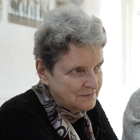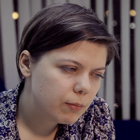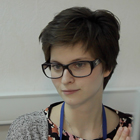Civic Assistance Committee
Helps migrants, refugees and forcibly displaced persons
Starting from the very beginning of Nagorno-Karabakh conflict, I became involved in peace-keeping activities; I facilitated the return of Azerbaijani and Armenian prisoners of war. When the first refugees appeared in Moscow, we established the Civic Assistance Committee (CAC).
All the flows of forcibly displaced and stateless persons went through our organization. Seven years ago labor migrants joined the list of people we assist, since our legislature generated a totally hideous system that is exploiting unskilled labor. Also, we created a center for the adaptation and education of children, where the alumni of Moscow universities volunteer by working with refugees’ children and preparing them for peaceful life and studying.
We are working. Conditions are harsh, but we do not have time for complaining. Unfortunately, people in this country do not understand why we need to help aliens at all. Yet, we must understand that they are people too. They simply found themselves in a very difficult situation.
During the week we always work in emergency mode. Our reception room is very small; sometimes refugees have no place to sit.
Syria, Chechnya, Kazakhstan, Uzbekistan, the Congo, Afghanistan, Abkhazia, Ukraine, South Ossetia, Cameroon, Latvia – these are just a few countries among those we receive people from. Many thanks to the locals – Muscovites and Moscow organizations send clothing, shoes, utensils, bedding items, toys, and food. We distribute all the donations among people in need.
I communicate with my colleagues very often; if they are unsure about something, I usually give them professional advice. Yet, we are really trying to build a horizontal structure here, and I hope the organization will continue its work, regardless of all the difficulties.
We attended the yearly conference of “Migration and Law” network organized by Memorial Human Rights Center. It gathers lawyers from 46 Russian regions. The topic of the seminar was “Novelties in Criminal Procedure Lawmaking and Civil Procedure Code.” This conference is a rare occasion when lawyers from the Russian regions can communicate with each other, as well as direct their questions at federal officials from the Federal Migration Service.
It is difficult to find a platform to communicate with the authorities inside this country; today it is almost impossible to get one’s message across to the state officials.
There are two groups of refugees from Ukraine. One group is being brought in by EMERCOM and the Federal Migration Service, and accommodated in temporary settlements. These settlements are created in boarding schools, recreation centers, and kindergartens. They immediately register those people and provide them with temporary asylum, because there are certain “quotas” in the regions. Those asylum seekers receive all sorts of assistance.
The other group is the people, who fled Ukraine not in an expedited manner and on a massive scale, but on their own. They collected some money, personal belongings, and left Ukraine because of war. These people are invisible for the system; they cannot come and register, because they do not have any receiving party. No one is waiting for them in Russia; no one will help a person, who came from god knows where, with registration; no one from Russian citizens will do this. This is why most of those people arrive with migration cards stamped by Russian border guards, and remain clueless about further settling and legalization. Those people are a majority, and they do not receive any assistance from the state. They hear about benefits and accommodations, but when they come to the Federal Migration Service and ask for help, they are told “No, our temporary residences are full. Go to a different region.
I have different memories associate with this park. During perestroika many people lost interest in the past. For instance, almost all of my students plunged headlong into business: “Svetlana Alekseevna, we don’t have time to study!” They started a company, and bought a car, which could go all to pieces at any moment.
I often walked here with this boy, Alyoshka. He was two years old. Back then, a young man dressed like my grandson is now would represent a kind of style or class, which was perceived as something dangerous. So, I was walking and saw some grannies running towards me: “Some racketeers are coming!” I looked at those racketeers and recognized my students. They came to take a test. Because at all other times they were busy. What can you expect from them? We were waiting for one kind of freedom, while they were waiting for an entirely different one.
Yet, this was still a very uplifting feeling. This was the time of hopes; we had a sense of community. Then it was gone. But that feeling of unity – I will never forget it.
I love suburban trains. We live outside of the city, but it takes only 35 minutes to commute to one of the Moscow’s railway stations, if it is not the rush hour. Then, one should walk in trail to the metro, if the queue is long, and then go Prospekt Mira station, where our office is located.
Sometimes, on my way to or from work I get a call from one of my colleagues from our hot line. If they received a call from a person who was attacked and who can speak English, I call this person back. If the person is a francophone, he will be contacted by our translators from French, Arabic, Dari, etc. This is a hot line for the victims of hate crimes. And when there is this language barrier, and the caller is not being understood, he or she is hanging up. In such cases we feel distressed, and if the person is not picking up when we are calling back, we keep trying again and again, until we finally get in touch with the caller.


